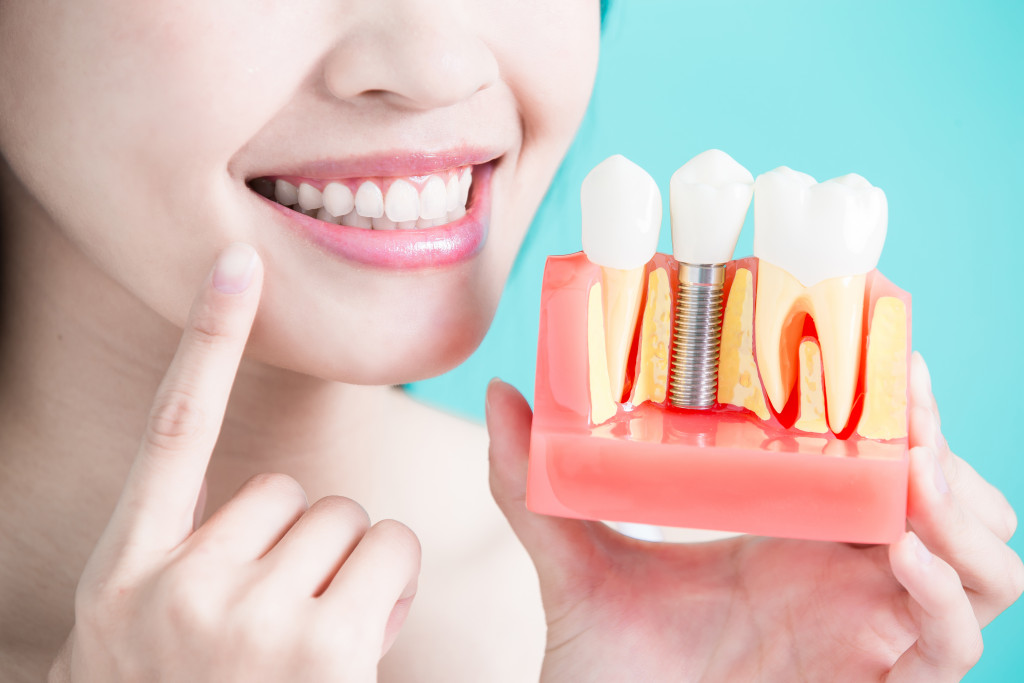If you have periodontal disease, you’re not alone. According to the Centers for Disease Control and Prevention (CDC), almost half of adults in the United States have this disease. Periodontal disease is a serious problem that, if left untreated, can lead to tooth loss, bone loss, and other health issues.
The good news is that periodontal disease is usually preventable; even if you already have it, it’s possible to control it and prevent it from getting worse. Here are five things you can do:
Quit smoking
Both cigarettes and e-cigarettes have addictive particles known as nicotine. Nicotine interferes with the body’s ability to fight infection, which can worsen periodontal disease. If you’re a smoker, quitting is the best thing you can do for oral health. Here are some ways you can do that:
Cold Turkey
The term “cold turkey” means to stop smoking abruptly without using any products, including nicotine replacement therapy (NRT) products like patches or gum. According to the American Lung Association, going cold turkey is one of the most effective ways to quit smoking, at least for a while. It’s known to have high relapse rates.
Nicotine Replacement Therapy
If you find it challenging to quit smoking cold turkey, you might want to try nicotine replacement therapy (NRT). NRT products help reduce withdrawal symptoms by delivering small, steady doses of nicotine. These products are available over the counter and by prescription.
Vaping Without Nicotine
If you’re not ready to give up vaping, you can try doing it without nicotine. E-cigarettes that don’t contain nicotine are available, and some people find them helpful for quitting smoking.
Quitting smoking is one of the best ways to avoid gum diseases. Follow the three options above if you struggle to quit it.
Practice good oral hygiene
This means brushing your teeth twice daily with fluoride toothpaste, flossing daily, and seeing your dentist regularly for professional cleanings and checkups. Here are also some activities that can improve your oral hygiene:
Oil Pulling
Oil pulling is a traditional practice that removes plaque and bacteria from the teeth. To do it, swish oil (coconut, sesame, or olive) in your mouth for 20 minutes, then spit it out.
Tongue Scraping
Tongue scraping is another way to remove plaque and bacteria from your mouth. You gently scrape your tongue with a tool (you can buy one at the drugstore) or a spoon.
Oral hygiene is crucial in preventing gum disease. Be sure to brush your teeth at least twice a day, floss daily, and see your dentist regularly.
Eat a healthy diet
A high sugar diet promotes bacterial growth in your mouth, which can contribute to periodontal disease. Eating plenty of fruits, vegetables, and whole grains helps keep your mouth healthy. You should also avoid sugary and acidic foods. Sugar is a significant contributor to tooth decay. Plaque-forming bacteria also break it down into acids that can damage tooth enamel. So, limiting your intake of sugary and acidic foods and drinks, including candy, soda, and fruit juices, is best.
Replace Missing Teeth
If your gums are exposed, you’re at risk for periodontal disease. So, it’s essential to replace missing teeth as soon as possible. Implant dental is the best way to do this because they look and feel like natural teeth. They also help preserve bone and prevent gum recession. They are also far more resilient and less inconvenient when compared to other options.

You can also choose to wear a partial denture or a complete denture. But both of these options have their drawbacks. Partial dentures can cause gum irritation, and they can also loosen over time. Full dentures can be uncomfortable, and they can also make it difficult to eat certain foods.
Lastly, you can get a dental bridge. This is when a false tooth is anchored to the teeth on either side of the gap. But, like partial dentures, bridges can also cause gum irritation.
Manage stress effectively
Stress can worsen periodontal disease by affecting your immune system and promoting inflammation in your body. Managing stress through exercise, relaxation techniques like yoga or meditation, or counseling can help keep your mouth healthy.
You can also choose to go on a vacation and have complete rest. This can be an effective way to manage stress and keep your mouth healthy.
If you have periodontal disease, taking steps to control the disease is vital for maintaining your oral and overall health. Talk to your dentist about the best ways to manage periodontal disease and prevent it from worsening. And remember, practice good oral hygiene habits like brushing twice daily and flossing daily!

